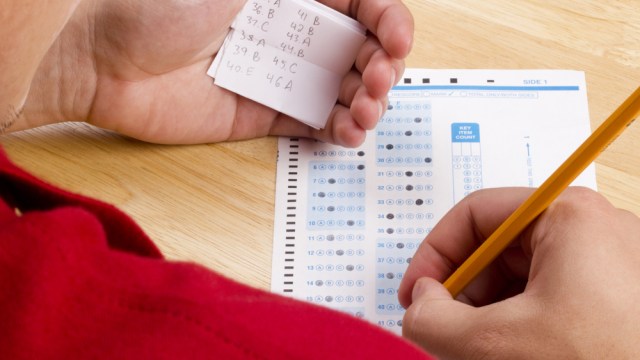Why We Blame Teachers

I think that teachers are under fire today because, as a friend put it to me, it’s folk wisdom that teachers are uniquely responsible for what happens to children. But, actually, it’s not folk wisdom.
There is a kind of a wiser understanding of how children grow and develop and learn that recognizes that children’s first educator is their family and that nurturance really matters. And on the first day of school there is already an achievement gap between the children of the wealthy and children of the poor and it’s also correlated with children from different ethnic backgrounds, where poverty and affluence matter a great deal as well.
So teachers have an immense impact within the school, within the classroom, but their impact is dwarfed as compared to the influence of the family. So I think that it’s easy for today’s corporate reform movement to say teachers are uniquely responsible, but that goes against everything that we know, both from neuroscience and from social science. Children’s brains and children’s attitudes are formed in the first five years of life and children’s opportunity to learn is affected by the homes in which they grow, the communities in which they grow, their respect for learning, their respect for teachers.
So, on the one hand, the corporate reform movement will say teacher quality is all that matters. We care so much about teacher quality. On the other hand, millions of teachers are demoralized by their line about if the scores are low, it’s your fault. Nothing else matters. The family doesn’t matter. Poverty doesn’t matter. The social conditions don’t matter. Only you matter. And what this does is to make teachers responsible for things beyond their control. They should certainly be responsible for what is within their control.
We have to acknowledge that the family matters. The community matters. The respect for education of the community matters. All those things are important and teachers play a very important role but they are not uniquely responsible for the success or failure of children.
The other important part about this particular narrative is to recognize that teachers work in a community and that the current way of looking at things is to say we’re going to look at the students’ test scores and hold teacher A responsible for those students and teacher B responsible for those students. Teachers don’t like this at all, because they understand that teachers A, B, all the way through Z are working together and that the reading scores are affected not just by what happens in the reading class, not just what happens at home, which is a mighty influence, but by what happens in the social studies class, by what happens throughout the school. So they work as a team. They work collaboratively. They don’t want to be put into competition with one another and they want to be recognized as a team.
If you’ll think about reading, what matters most is whether children are read to by their parents, that’s A-1. And children who are never read to by their parents don’t start school on a level playing field. So there’s a kind of hostility to teachers that underlines the current corporate reform narrative.
In Their Own Words is recorded in Big Think’s studio.
Image courtesy of Shutterstock





